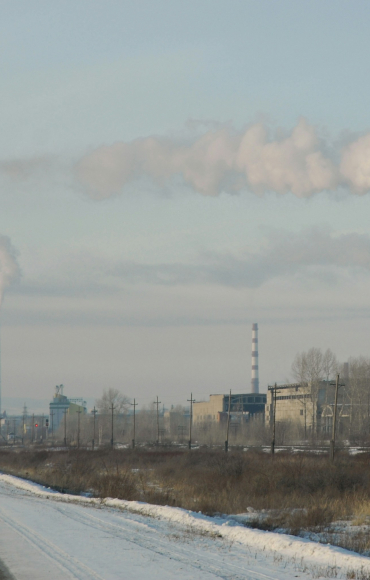
The Poison of Prishtina That Makes Every Breath a Struggle
The Poison of Prishtina That Makes Every Breath a Struggle A winter morning in Prishtina often begins under a heavy, grey sky, where the air feels thick and each breath reminds you of the...
Balkan Green Foundation and Germanwatch travelled to Northern Macedonia together with two partner organisations. On-site, the partners learned that an open-cast lignite mine can become a solar park, how small businesses are revolutionising the electricity supply and why cross-border cooperation is particularly important for the energy transition in the Western Balkans.
Oslomej is a very small village in the municipality of Kičevo in western North Macedonia. There used to be a big hole in the ground near the village - since the early 1980s, excavators have been pulling tons of lignite out of the ground here. But pure mining is supposed to be a thing of the past by 2030, and already today you can see mainly shiny blue standard modules when you let your eyes wander over the former coal mine. The energy they produce can cover the electricity needs of up to 5,000 households. Oslomej has thus become a symbol of change in the Western Balkans. The region has begun to develop from a coal-mining location into a hotspot for renewable energies in Europe.
During the study visit within the “Energy Transformation and Decarbonisation in the Western Balkans”, successful and promising model projects in Northern Macedonia were presented - such as the one in Oslomej.
Good conditions for a successful energy transition
The mix of hydropower, wind and solar in the Balkan states is so ideal that North Macedonia has already announced the closure of its two coal-fired power plants for 2030. With this measure, the country also wants to meet the goal shared with the EU of achieving climate neutrality by 2050.
Northern Macedonia is a pioneer in the region in the expansion of renewable energies. This is shown not only by large-scale projects like the one in Oslomej. Smaller companies are also innovating. The company "Solar Macedonia", for example, offers complete solutions: Solar cells on the roof cover the energy needs of a household - and in combination with battery storage, it even becomes energy self-sufficient. At the same time, the company thus brings the entire country closer to solving the problem of not being able to overload the power grid by excessive feed-in when the sun is shining strongly. Agriculture is also discovering the potential of renewable energies. Agricultural cooperatives are planning to supply their members with sustainable energy - they often have enough space for this, for example on the roofs of warehouses.
Belica is a good example: a few years ago, the village was literally depopulated due to the emigration of young people to the West and characterised by a lack of prospects. In the meantime, the remaining inhabitants have turned the tide: With a lot of initiative and imagination, the village is bringing back young people; gentle tourism, sustainable agriculture and cheap energy are the recipes for success. The old school building will become the energy provider for the entire village, thanks to the planned solar panels.
The study visit was organised within the "Energy Transformation and Decarbonization in the Western Balkans" project that is supported by the Ministry for Economic Cooperation and Development (BMZ) and is implemented by Germanwatch, Balkan Green Foundation, Belgrade Open School and Eko-Svest.
Article by: Verena Allert
Senior Advisor – Energy Transition Collaboration Western Balkans at Germanwatch